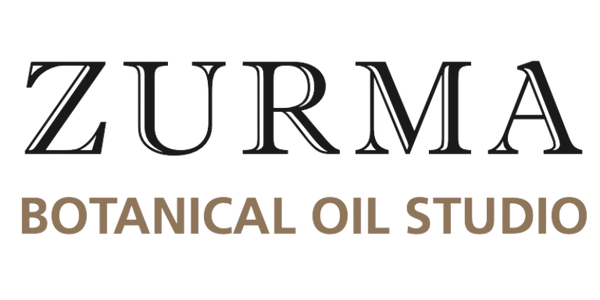
Why we stock highest-quality oils
Share
Kia ora whānau,
When it comes to essential oils, not every essential oil is necessarily of the same quality, purity and safety. Just like kai (food) from the supermarket, there are different grades, and the price tag often reflects what’s inside. Here’s a straightforward rundown of the common grades you’ll see, why costs can swing wildly, and why at Zurma we stick to only the highest-quality oils—no compromises.
1. Common Essential-Oil Grades
Aromatherapy (Therapeutic) Grade
– Sourced and tested for purity and chemical profile.
– Typically steam-distilled or cold-pressed, with Certificates of Analysis (COA) and GC-MS reports.
– Great for massage blends, diffusing, topical use (diluted) and for use in skincare e.g. lotiona & balms etc.
Cosmetic (Fragrance) Grade
– Intended for perfumery or scented products.
– Uses minor adulteration or additives to bolster aroma or shelf life.
– Cheaper, but lacks the consistency or potency needed for true aromatherapy therapeutic effect.
Pharmaceutical Grade
– Pharmacopeia grade essential oils are chemically standardized to specific quality and purity requirements for use in pharmaceutical applications. These oils meet the standards of a country's official pharmacopoeia (e.g., European Pharmacopoeia, United States Pharmacopoeia).
– Rare in retail; usually only used in clinical or lab settings.
– Highest price point, often overkill for home aromatherapy.
Adulterated Grade
– Adulterated essential oils are those that have been diluted, extended, modified or been 100% made with synthetic compounds or cheaper substitutes, compromising their purity, safety, and therapeutic efficacy.
– Usually the cheapest of essential oils in the market, but not always.
____________________________________________________________________________________________
2. What Drives Price Variations
Plant Species & Yield
– Oils from rare or low-yield plants (Rose, Jasmine) can cost hundreds of dollars per 10 mL.
– High-yield oils (lavender, peppermint) are more affordable “per drop”.
Origin & Harvesting
– Wildcrafted vs cultivated: wild yields are smaller and less predictable, hence steeper prices.
– Single-source, single-distillation batches cost more to track and verify.
Extraction Method
– Steam distillation is standard, but CO₂ extraction and solvent-free methods preserve more active ingredients — at a premium.
– Cold-pressed oils e.g. primarily citrus varieties like orange, lime, bergamot etc..
Certifications & Testing
– Organic, Fairtrade, Rainforest Alliance: each certification layer adds both paperwork and cost.
– COA and GC-MS analysis ensure you’re not getting cut with cheaper synthetics—worth every cent if you’re after true potency.
Supply & Demand
– If a harvest fails or political unrest disrupts farms, prices spike overnight.
– Popular scents (Rose Absolute in Valentine’s season) can see temporary price surges.
Weather
-Then there’s Papatūānuku’s whims—droughts, floods, frosts or pests can negatively impact harvests, sending prices through the roof.
3. The Pitfalls of “Cheap” Oils
When an essential oil is being sold at a price that is cheaper than the market average then alarm bells should ring. Cheap oils are often:
Adulterated: with synthetic fragrance chemicals or lower-cost carrier oils.
Blended: oils from multiple sources of varying quality, losing the signature profile of the original terroir (local soil and climate).
Under-tested: no COA or GC-MS, so you don’t know what’s actually in the bottle.
Using these in blends risks skin irritation, no therapeutic benefit or worse, or simply a disappointing scent. However, sometimes adulterated essential oils are sold at an average or above average price so only in-depth supply chain verification can prove the authenticity of an oil which Zurma always checks.
4. Why Zurma Stocks Only the Best
At Zurma Botanical Oil Studio, we reckon quality is everything. Here’s our promise:
Single-Source Distillation
Each batch can be traced back to the farm or distillery—no mystery blends.
Rigorous Testing
Every batch comes with a COA and GC-MS report. You can trust that Zurma essential oils are pure, natural, potent, and unadulterated. Our NZ essential oils come direct from the farm so dont need reports.
Certified Organic & Ethical
Zurma is a Certified Organic company by BioGro to prove that our organic products are genuine. All our essential oil suppliers must meet our high ethical standards.
Small-Batch Approach
We keep things sweet as by bottling in small runs. That means fresher oils with all the colour, scent and active goodness intact.
Sustainability
From recycled packaging to supporting regenerative farming practices, we make sure our supply chain honours Papatūānuku (Mother Earth).
5. Investing in Quality
Zurma primarily sells premium aromatherapy grade essential oils and it isn’t just about bragging rights— it’s about safety, consistency and real results. Zurma also sells natural blends, but we always identify that these products are blends made with 100% pure and natural essential oils. We do not sell adulterated oils or blends with synthetic ingredients at all. When you’re diffusing, blending or applying topically, you need to be confident that you’re getting the genuine article. Sure, it might cost a bit more upfront, but you’ll find you use less, get better outcomes, and avoid any nasty surprises.
At Zurma, we’re honoured to bring you essential oils that tick all the right boxes—no shortcuts, no nasty extras, just pure and natural botanical aroha in every drop. Explore our collection today and experience the difference that true authentic quality makes.
